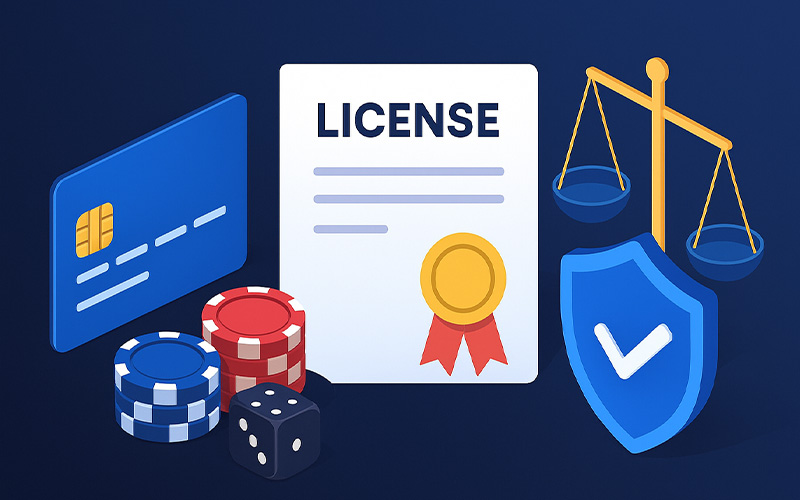
The selection of a registration destination for an online gambling project is a strategic decision that sets your growth for years to come. The jurisdiction shapes reputation, access to payment rails, operational pace, and margins. Malta and the Isle of Man are the classic choices, boasting mature frameworks, strong recognition, and a proven track record of integrity.
In 2026, Nevis introduced a modern regime designed for speed, flexibility, and zero-tax efficiency. The island’s new authority brings responsible gambling safeguards and crypto-ready rules. All of this aligns with general compliance.
Why Jurisdiction Matters
Your Registration Hub Defines:
- Reputation and trust in B2B and B2C markets
- Access to PSPs, banks, and crypto gateways
- Licensing speed and operational efficiency
- Tax model and long-term profitability
Overview of Three Regimes
Nevis (2025)
- Fast setup (≈2–3 months)
- 0% corporate tax
- Crypto payments approved
- Modern AML & RG controls
- Low entry cost
Malta
- Mature EU framework since 2002
- ≈5% effective corporate tax
- Long approval cycles
- High credibility & transparency
Isle of Man
- Strong infrastructure, UK alignment
- Setup ≈3–6 months
- 0.1–1.5% duty on GGY
- Higher entry threshold, blue-chip optics
Historical Context
Nevis (2025)
New authority with FATF-compliant rules, crypto integration, agile licensingMalta (2002)
EU pioneer, MGA-led system, remote gaming laws, now Europe’s regulatory benchmarkIsle of Man (2001)
Early adoption, focus on integrity, fintech and player protectionKey Comparison
Compliance Checklist
- KYC/KYB for UBOs
- AML/CTF & RG policies
- Periodic audits and renewal filings
- PSP onboarding docs
- Crypto transaction logs (if applicable)
Tax and Crypto Policy
- Nevis: Zero corporate tax, multi-currency & crypto-friendly
- Malta: Reduced-rate system under EU standards
- Isle of Man: Minimal GGY duty, no capital gains tax
Who Should Choose What
Risks to Note
- Nevis: young framework, banking onboarding may vary
- Malta: heavy paperwork, slower approvals
- Isle of Man: higher entry costs, complex coordination
Key Takeaways
- Nevis: new, agile, crypto-first, 0% tax
- Malta: established, EU-compliant, 5% effective tax
- Isle of Man: reputable, British-aligned, 0.1–1.5% duty
Casino Market compares the hot new jurisdiction with Malta and the Isle of Man across the factors operators ask about first. Order a complete gambling project development with the suitable licensing, specifically selected for your target audience and platform peculiarities.
The Overview of Three Regimes
Before you get to choose advisers or prepare documents, the general outline helps you see the big picture. Each of these hubs offers credibility, but the entry bar, timelines, and tax maths differ in practice.
A quick overview of Nevis, Malta, and the Isle of Man:
- Nevis is a brand-new 2025 framework with streamlined onboarding, zero corporate tax, crypto-friendly rules, built-in responsible-gambling controls, a typical setup of ~2–3 months, and a budget-friendly entry.
- Malta is the EU trailblazer with mature oversight and strong brand recognition, more complex pathways, effective corporate tax of around 5% after credits, but generally longer approval timelines.
- The Isle of Man has a reputation for integrity and serious infrastructure that adheres to British-aligned standards, with the setup commonly at ~3–6 months, a gambling duty of ~0.1–1.5% of GGY, and a higher entry threshold.
Brief Histories that Shape Today’s Rules
The modern possibilities of each country derive from its formation as a gambling jurisdiction:
Malta
The country’s story begins in the early 2000s, when the Lotteries and Gaming Authority (now the Malta Gaming Authority) was formed under the Lotteries and Other Games Act. Online regulation took shape in 2002 after the EU accession in 2004. This is when Malta cemented its position with remote gaming legislation under Prime Minister Lawrence Gonzi, EU-wide passporting rights, and rigorous standards that drew waves of operators.
By the 2010s, the jurisdiction had evolved into Europe’s gaming capital with transparency, fair play, and consumer protection. Recent reforms have aimed to address criticisms of over-regulation and alleged wrongdoing ties. The jurisdiction remains highly credible, but its maturity brings complexity that can slow or deter newer market entrants.
Isle of Man
This country’s regulatory establishment dates to 1962 with the creation of the Gambling Supervisory Commission to oversee land-based activities. With the anticipation of the digital shift, the Online Gambling Regulation Act of 2001 established a framework for remote operators, which included requirements for local incorporation and accountable directors.
Over the following decade, strengthened player protections and ongoing attention to fintech trends reinforced the island’s premium reputation. The licence stands for integrity and innovation, supported by strong infrastructure and British-aligned standards. That stature, however, often comes with higher entry costs and timelines than newer, more agile regimes.
Nevis
The country entered the iGaming arena in 2025 with the launch of the Nevis Online Gaming Authority. The stated ambition was to build a respected, competitive hub with future-proof legislation that embeds responsible gambling. The promise is efficient approvals and credible oversight without the baggage of older, more cumbersome systems.
Based on the Caribbean’s offshore expertise and the FATF whitelist, Nevis has moved quickly to signal innovation, notably in crypto integration, while maintaining AML and player-protection standards. The result is a framework designed to attract operators who want a clean, modern alternative where flexibility, speed, and reputation can coexist.
Key Factors Comparison

The final choice must be made based on budget, speed, brand optics, operability, and the tax maths. These levers affect time-to-revenue and long-term margins far more than individual clauses in a rulebook.
A concise comparison across the factors operators ask about first:
- Cost. Nevis positions itself as the more affordable option without sacrificing oversight quality. Malta and the Isle of Man typically carry premium set-up and maintenance costs in line with their long-established status.
- Setup time. Nevis commonly targets about 2–3 months post-incorporation, which suits aggressive launch plans. Malta processes often take longer, while the Isle of Man is usually in the 3–6 month range.
- Reputation. Malta benefits from EU-aligned credibility, and the Isle of Man is synonymous with integrity and stability. Nevis is quickly establishing a Tier-1 standing through modern, transparent rules that emphasise player protection and AML.
- Flexibility. Nevis supports crypto payments, multiple gaming verticals, and adaptable compliance out of the box. Malta’s pathways reflect EU directives, and the Isle of Man remains structured yet progressive for serious operators.
- Tax benefits. Nevis applies 0% corporate tax on iGaming revenue. Malta’s effective burden is roughly 5% after credits, while the Isle of Man levies about 0.1–1.5% on GGY with no capital gains tax.
Paperwork and Compliance
Beyond headlines about taxes and timelines, the day-to-day adherence determines how quickly you can launch and how smoothly you can operate. Nevis emphasises streamlined documentation and modernised requirements, while Malta and the Isle of Man apply deeper, more structured processes that reflect their maturity. A clear sense of the paperwork helps you plan resourcing and avoid delays.
The practical compliance bundle operators can expect to prepare and maintain:
- beneficial-owner KYC/KYB and core corporate documents;
- policy set: AML/CTF and responsible gambling (self-exclusion, deposit limits);
- ongoing monitoring and periodic reports to the authority;
- audit and renewal checkpoints across the licence term;
- crypto-ready procedures where applicable (wallet flows, record-keeping);
- PSP onboarding artefacts and banking comfort signals;
- application checklists and correspondence protocols with the regulator.
Crypto, Finances, and New Verticals

Nevis approaches payments and product scope with an explicitly modern stance. The framework is designed to accommodate both crypto and fiat from the outset. Here, the digital assets are treated as part of a normalised payments mix rather than an awkward add-on. For operators, this means fewer workarounds and a clearer compliance path during the design of wallet flows, transaction records, and alignment with disclosure requirements and responsible gambling controls.
Product flexibility follows the same logic. Nevis is open to a broad range of gaming verticals and evolving formats. The emphasis is on letting operators iterate quickly and maintain a documented risk posture, which suits teams planning frequent releases or roadmap pivots.
Malta and the Isle of Man both offer mature routes to market, but their payment and product pathways reflect established, structured regimes. Crypto support and novel mechanics are possible, yet operators should expect more defined procedures, with requirements shaped by EU-aligned expectations in Malta and British-standard oversight on the Isle of Man. This brings predictability and strong institutional optics, though it can translate into longer design-to-approval cycles.
On the product side, both hubs handle multi-vertical operations well, backed by experienced regulators and infrastructure. The trade-off is pace, as the same structures that inspire confidence can add coordination steps, which matter for speed or frequent updates. For brands that prioritise blue-chip perception, that structure is a feature, and for those that chase rapid iteration, it is a factor to build around.
Who Should Pick What
The right licence should mirror your product plan, payment corridors, and brand optics. Different hubs reward distinct priorities, so choose the one that lines up with your timelines, tax model, and compliance appetite.
Quick-fit scenarios to match your priorities:
- Fast launch on lean budgets. Choose Nevis for streamlined onboarding, lighter paperwork, and typical 2–3 month setups.
- EU-centric brand optics and institutional trust. Choose Malta for mature, EU-aligned oversight and long-standing market recognition.
- Blue-chip positioning with British standards. Choose the Isle of Man for integrity signalling and strong infrastructure.
- Crypto-heavy roadmap with rapid iteration. Choose Nevis for the support of digital currencies and adaptable compliance across multiple verticals.
- Adherence-first enterprise. Choose Malta or the Isle of Man for defined procedures, predictable audits, and established regulator playbooks.
- Maximised margins via tax efficiency. Choose Nevis for a 0% corporate tax regime that compounds over scale.
Risks and Challenges
Every jurisdiction carries trade-offs beneath the headline benefits. It is critical to anticipate them upfront to help you maintain healthy relationships with regulators, PSPs, and partners. The aim is not to over-engineer risk, but to pre-empt the handful of friction points that typically slow teams down.
Key risks and challenges to be prepared for:
- Nevis’ newness and market education for PSPs and affiliates;
- banking comfort checks;
- policy drift as a young regime matures;
- Malta saturation and heightened scrutiny on documentation depth;
- Isle of Man entry costs and timeline buffers for structured approvals;
- product consent pacing versus your release roadmap;
- licence explainer pack for partners (RG/AML summaries, audit rhythm);
- contingency rails for payments (secondary PSPs, fallback corridors).
How to Make Preparations for a Licence Acquisition
A clear decision is easier when you translate strategy into steps. The aim is to move from a broad comparison to a concrete, resourced plan that gets you live without unnecessary loops.
Steps to progress from paper to practice:
- Map target markets and payment corridors. Confirm where you will acquire players first, which PSPs you will need, and whether your flow is fiat, crypto, or both.
- Prioritise licence factors. Rank speed, tax efficiency, and brand optics for your use case, then select the hub that best fits those priorities.
- Pre-gather due diligence documents. Prepare BO KYC/KYB, corporate papers, AML/CTF and RG policies, along with any technical and financial statements you will need.
- Lock advisers and PSPs aligned to the hub. Engage regulatory and payment partners that understand the chosen jurisdiction and can provide comfort artefacts early.
- Schedule application, checks, and go-live. Set realistic buffers for reviews, organise any required audits, and align your development freeze with the anticipated approval window.
- Prepare day-one operations. Finalise RG and AML playbooks, assign owners for monitoring and reporting, and rehearse your incident and change-management procedures.
The Main Things about Nevis, Malta, and the Isle of Man for iGaming Licences
The jurisdiction selection is ultimately about speed and economics, not just the name on the certificate. The right licence fits your roadmap, payment flows, and compliance appetite so you can scale without friction.
Key takeaways about the jurisdiction comparison:
- Nevis combines streamlined onboarding with an iGaming-first rulebook from 2026, typical setups of 2–3 months, and a materially lighter compliance burden.
- Malta retains EU-aligned prestige and deep regulatory experience, but expects more documentation, longer pathways, and an effective tax burden of roughly 5% after credits.
- The Isle of Man signals integrity and blue-chip positioning with British-aligned standards, albeit at the cost of higher entry thresholds and common timelines of 3–6 months.
- On flexibility, Nevis is crypto-ready and multi-vertical by design, while Malta and the Isle of Man are structured and predictable but less agile for rapid iteration.
- On tax, Nevis’ 0% corporate quota changes the margin story, versus Malta’s reduced-rate regime and the Isle of Man’s 0.1–1.5% GGY with no capital gains tax.
If you want a licence that prioritises speed, flexibility, and margins, Nevis is your choice. If you need maximum institutional optics, Malta or the Isle of Man may be preferable.
Casino Market can map a licence shortlist specifically for your project and target audience. Order a turnkey solution and enjoy flawless platform elaboration with the perfectly chosen licence.
Have questions or want to order services?
Contact our consultants:
- e-mail: manager@casino-market.com
- feedback form.
Check the information used to contact us carefully. It is necessary for your safety.
Fraudsters can use contacts that look like ours to scam customers. Therefore, we ask you to enter only the addresses that are indicated on our official website.
Be careful! Our team is not responsible for the activities of persons using similar contact details.






















